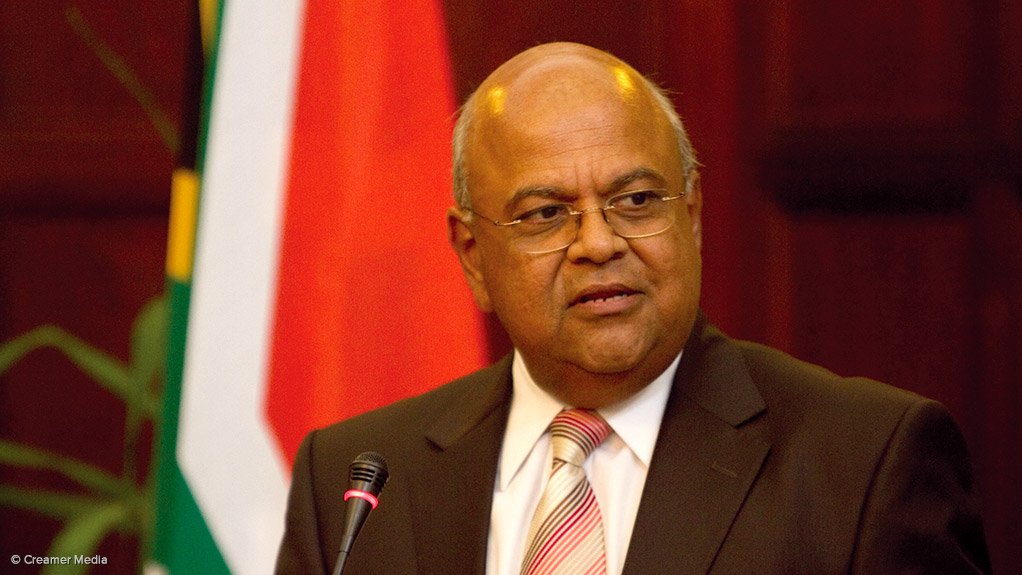/ MEDIA STATEMENT / The content on this page is not written by Polity.org.za, but is supplied by third parties. This content does not constitute news reporting by Polity.org.za.
The Ministry of Cooperative Governance and Traditional Affairs welcomes the publication of the Criminal Matters Amendment Bill 2015 as a further measure in governments efforts to protect our nation's essential infrastructure from organised criminal activity.
Theft and damage to infrastructure have devastating consequences for local government and the provision of basic services such as water, electricity, transport, and health.
The Bill introduced by the Minister of Justice proposes to criminalise the unlawful and intentional tampering with or damaging or destroying of essential infrastructure and provides for the imposition of severe penalties, up to 30 years imprisonment.
A working group consisting of Deputy Ministers Andries Nel (Cooperative Governance & Traditional Affairs)(Chairperson), Maggie Sotyu (Police), John Jeffery (Justice & Correctional Services), Ellen Molekane (State Security), and Bulelani Magwanishe (Public Enterprises) was established at the beginning of 2014 to make proposals for urgent and concerted action by government, the private sector and communities to protect South Africa’s socio-economic infrastructure from the theft and illicit trade in both ferrous and non-ferrous metals.
The working group made recommendations to tighten legislation, strengthen the operational capacity of our law enforcement agencies and improve collaboration and co-ordination amongst them and the private sector.
The working group also recommended that government mobilize all citizens to collaborate with law enforcement agencies and foster a civic morality that respects public infrastructure and demands its defense.
In a report to the Presidential Infrastructure Co-ordinating Council (PICC) the working group noted that whilst copper cable theft was the focus of criminal activity, increasingly ferrous metals such as steel and iron affecting transport and electricity infrastructure are also being targeted.
The working group highlighted the following challenges:
1. The social and economic cost caused by theft often far outweighs the actual value of the material stolen and resulted in loss of income, disruption of essential services, diversion of scarce resources as well as social instability.
2. Increasingly frequent reports of deliberate damage to local government infrastructure, especially water infrastructure, to achieve political goals or economic gain.
3. Weak operational co-ordination and information sharing amongst law enforcement agencies and the affected industries has hampered the fight against these crimes. The absence of uniform procedures and protocols for the investigation and prosecution these crimes has compounded these challenges.
3. Legislative loopholes and a lack of awareness amongst investigating officers, prosecutors and judicial officers of the seriousness of these crimes has led to them often being treated as petty crimes receiving minimal sentences.
4. The poor management of the licensing of scrap metal dealers and monitoring their operations as well as inadequate monitoring of scrap metal exports have exacerbated the situation.
The PICC accepted recommendations by the working group that existing legislation be strengthened by:
1. Consideration of amendments providing for minimum sentences in cases where: (a) the theft of non-ferrous metals has caused serious interference with or disruption of an essential service rendered for the benefit of the public, serious damage to an infrastructural facility or system, whether publicly or privately owned; or (b) the theft was committed by a security officer at a property he or she was required to protect or the security officer acted in common purpose or conspired with a group or syndicate.
2. Tightening the regulation of scrap metal dealers by, amongst others: (a) limiting the number of licenses issued, (b) centralizing their registration nationally, (c) requiring the registration of export agents who buy from scrap metal dealers; (d) prohibiting export agents from buying from unregistered dealers; (e) prohibiting all payment in cash for scrap metal.
3. Making it more difficult to obtain bail in cases involving the unlawful possession or illicit dealing in non-ferrous metals.
The working group also recommended that the Ministers of Trade and Industry and Economic Development and the National Commissioner of the South African Revenue Service consider measures to ensure that all containers containing scrap metal will be subjected to rigorous inspection in terms of the International Trade Administration Commission Act.
The PICC also accepted the working group's recommendations that operational efficiency of law enforcement agencies be enhanced by:
1. A multi-disciplinary, multi-agency approach to ensure that the theft of and illicit trade in both ferrous and non-ferrous metal are dealt with through co-ordinated intelligence driven investigations and prosecutions.
2. Directives issued by National Commissioner of Police and the National Director of Public Prosecutions to police officers and prosecutors emphasizing the seriousness of these crimes and outlining uniform standard procedures for their investigation and prosecution.
3. The capacity of our law enforcement agencies will be supplemented by proclaiming security officers of state owned companies as peace officers in terms of the Criminal Procedure Act and giving them powers contained in the Second Hand Goods Act.
The PICC also accepted the recommendation that consideration be given to further measures including either a direct ban on all scrap metal exports for a period of time or the imposition of an export tax to decrease its commercial attractiveness and in this way reduce the demand for the collection of scrap metal which is feeding the theft of cable and metal.
Issued by Ministry of Cooperative Governance and Traditional Affairs
EMAIL THIS ARTICLE SAVE THIS ARTICLE
To subscribe email subscriptions@creamermedia.co.za or click here
To advertise email advertising@creamermedia.co.za or click here











